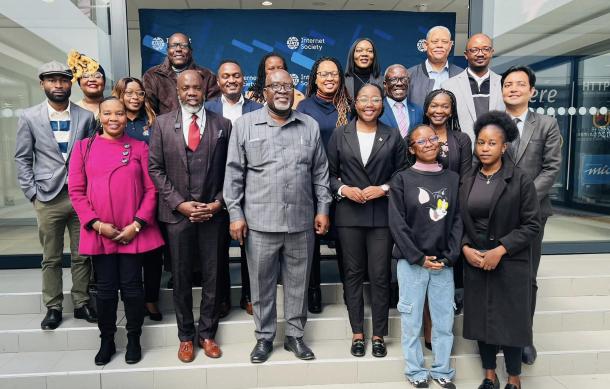
The Internet is rapidly changing the face of public service and making daily life easier.
Since Artificial Intelligence and other technologies have been evolving with the internet ecosystem, it has become important to assess how people engage with them.
It is against this background that the Internet Society Namibia Chapter launched the Namibia National Internet Universality Indicators Assessment in Windhoek today.
Speaking at the launch of the Namibia National Internet Universality Indicators was the Deputy Minister of Information and Communication Technology, Emma Theofelus.
"We are telling our fellow UN member states that we found the Internet Universality Assessment Framework fit for purpose and to embrace it in sharing good practises by voluntarily accessing the internet in Namibia across various cross-cutting issues at the national level. By evaluating Namibia's internet environment against the ROAM-X indicators, we are confident that this process will present a comprehensive and substantive understanding of the national internet environment and policies, assess our policies' alignment to UNESCO's ROAM principles and their contribution to sustainable development, and develop policy recommendations and practical initiatives that will enable Namibia to improve its Internet ecosystem, particularly as frontier ICT evolves."
She revealed that 51% of the Namibian population has internet access; in this regard, the ministry is rolling out a national digital programme to empower those without the means with some digital skills.
The Head of the Education Sector at UNESCO, Ehrens Mbamanovandu, believes that the Internet Universality ROAM principles can serve as a framework to help shape the design, application, and governance of Artificial Intelligence.
"We are happy to note that Namibia will assess all 303 Indicators and that a Multi-stakeholder Advisory Board (MAB) has been constituted, comprising leading experts from various stakeholders. While the ROAM-X indicator assessments have only been launched in recent years, the process has attracted high-level attention and support from many countries' key ministries, policymakers, and other actors. Because of its multi-stakeholder approach, the impact of the assessment on policy improvement has been evident, including by promoting human rights, openness, and accessibility in the inclusive policy-making process at the national level."
Mbamanovandu further encouraged different digital actors to get involved and participate in discussions on the Internet Universality Indicators process.





